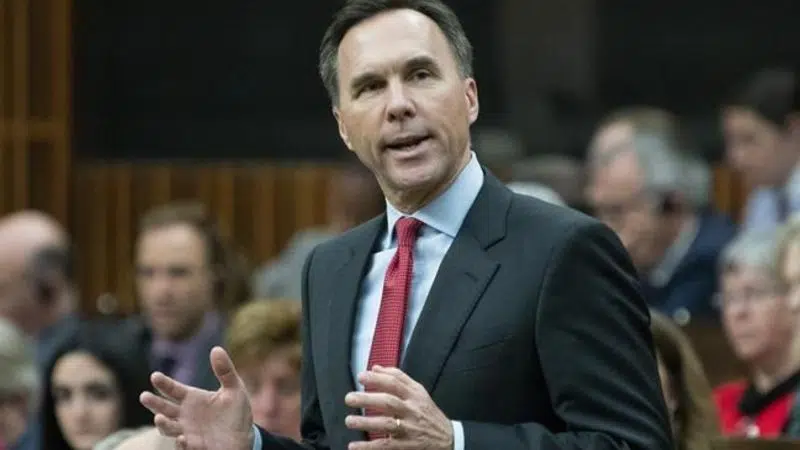
Morneau insists LNG export terminal shows Canada can deliver big projects
OTTAWA — Finance Minister Bill Morneau says a $40-billion operation to eventually ship liquefied natural gas to Asia from Canada’s west coast shows the country can still get major projects done, despite corporate complaints about regulatory hurdles.
The federal Liberals have been facing criticism from some political foes and business leaders over Canada’s regulations, including those blamed for holding back the construction of oil pipelines out of Alberta.
With the federal election six months away, there’s intense political debate about Canadian regulations as parties, especially the Liberals and Conservatives, fight over which of them one is best suited to deliver on energy projects.


